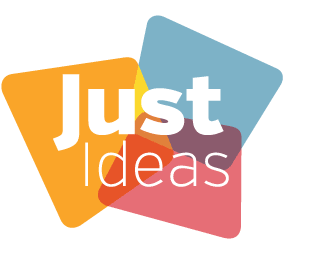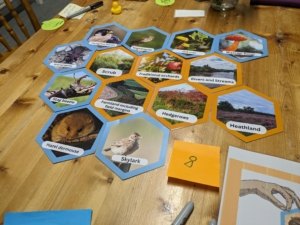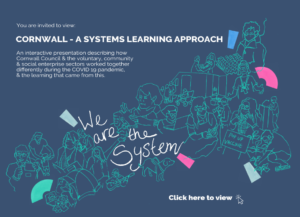Just Ideas’ Summer Review 2024
Bringing diversity, creativity and lived experience
This year, we’ve committed to reflecting on our progress on a regular basis and sharing that with you. Here are our reflections on the work we’re doing in the spring of 2024, highlighting what we’re learning, and recognising with gratitude the contributions of everyone involved.
Covid-19 Inquiry – Every Story Matters
Working with Ipsos, in partnership with WSA Community, we’ve started Module 6 of the UK Covid-19 inquiry listening exercise – Every Story Matters. This focuses on the experiences of people with care needs and in the care workforce, as well as unpaid carers and loved ones of people needing care and support during the pandemic.
Our team will be doing 48 interviews between now and September, working to make sure we hear and support people whose voices may not be heard through more mainstream methods. Because of our specialism in this area, we will be supporting people with learning difficulties, and those that care for them, to share their stories.
We’ll be going into care homes, talking to the workforce, residents, loved ones and unpaid carers. It’s obviously very sensitive work. We’ve refreshed our trauma-informed research practice training and made sure that appropriate emotional support is available, for our team and for participants.
We’ve faced challenges in working out what’s appropriate in terms of ethics, and managing expectations as to the stories that we can appropriately capture. We’re working hard to make sure that conversations happen in a way that doesn’t retraumatise and that provides a positive opportunity to reflect, talk and be heard.
We’re really excited to be doing this work with a great team, including two new members who bring their youth and diversity of experience.
The Magpie Project

We were put in contact with this brilliant charity by one of our team. The Magpie Project provides a safe and fun place for mums and preschool children seeking safety, who are living in temporary or insecure accommodation in and around Newham, East London. They invited us to work on their Preschool Pathways Project, listening to the difficulties families are facing in meeting the emerging needs of their preschool children, and working with local health professionals to help them access support.
In the first phase, we’re providing specialist facilitation for eight workshops to support the mums in talking about their experiences, so they can be heard by a range of healthcare professionals, from speech and language therapists and special educational needs coordinators to health visitors, social workers, midwives and staff from children’s centres.
The second phase will build on what we know about the barriers these mums face, exploring what will help them get the specialist support they need for their children – identifying where there are missed opportunities. We’ll be supporting the codesign of pathways and tools that enable people in this situation to be looked after much better by the system.
One of our real strengths is the team that we’ve been able to bring to this work. It’s been really important to represent ethnic diversity, and to include team members with lived experience of some of the challenges these mums and children are facing. We’ve found a really good match with The Magpie Project’s values and person-centred approach, and are delighted to be working together.
Berkshire Local Nature Recovery Strategy
Our engagement work on the Berkshire Local Nature Recovery Strategy (LNRS) culminated in a webinar for Reading Climate Festival in June, updating people on our progress. Through this project, Just Ideas has organised and facilitated:
– six place-based community workshops, attended by a total of 235 people
– three workshops for farmers and landowners, attended by a total of 140 people
– an online workshop with 35 participants
– 400 responses to an interactive survey.
We’re delighted to have achieved such a successful level of engagement, making sure that community voices have really been heard. We’re proud to have created an approach that was informative, enjoyable and allowed people to learn from each other.
“Just Ideas were friendly and professional, working hard to reach timelines with a complex and changing brief! I always enjoyed meetings with them, coming away feeling supported and empowered about the project. The workshops received very positive feedback, and the notes they painstakingly collected are being used to shape the strategy.”
Rosie Street, Berkshire Nature Recovery Strategy Manager
Again, our significant strength was in putting together a team of people who specialise in facilitating workshops and creating visual resources related to nature and ecology. Through our creative approach to workshop design and communicating information, we’ve seen people and nature really come alive.
New Local
We’re excited to be working on two projects with New Local. One is working with the council and communities in Ealing to codesign ways for communities to get engaged in influencing the council. Events so far have included our team getting involved in impromptu dancing, alongside some more traditional engagement and research!
We’re also working with Leicester City Council on a project called Leicester Changing Communities. The aim is to help the council understand what makes its local communities tick and what’s foremost in people’s minds, with a view to being better able to connect with those diverse, changing communities.
St Martin-in-the-Fields
We’re delighted to continue our long-standing relationship with St Martin-in-the-Fields Charity. Recently, we’ve been working alongside their senior leadership team, providing bespoke coaching and leadership support, and supporting managers in the organisation through coaching and mentoring.
It’s a dynamic organisation that has grown a lot recently and had some big changes in the senior leadership team. We’ve facilitated an interactive workshop with managers to identify their support needs over the over the coming year, and a codesign workshop to talk about their learning and development needs over the next month.
Connecting Health Communities
Helen is working with IVAR on Connecting Health Communities in Dudley, exploring how cross-sector partners and communities can work together to shift behaviours and help residents live healthily and happily. We’re looking at childhood and family obesity as both an outcome and a contributing factor to other difficulties.
We aim to help professionals working in the area to deepen their understanding of how children and families make choices about food and exercise, and the barriers to making choices that lead to greater health and happiness. We’re delivering interactive workshops with primary schools, involving asking, listening, imagery, activity and movement.
Helen has also been delivering webinars and training for the Connecting Health Communities Champions Network. It’s been really interesting to explore leadership in situations where people are tackling complex issues, as well as learning about spotting unconscious bias, and sharing practical tools for leading change collaboratively.
Local Trust and Big Local
Reflect | Recharge

We’ve reached the final stage of Reflect | Recharge, which has been a huge piece of work for us over the past two years, involving 15 Big Local areas. It’s been really valuable to reflect on the ten-year process of Big Local, which involved challenges like the pandemic and cost-of-living crisis, and to acknowledge the energy of so many community volunteers.
Richard has been working with groups in Manchester and Warrington, exploring the ongoing change that people want to see in their communities. We’ve focused on valuing people’s contributions to their communities, thinking through lasting infrastructure change, and supporting groups to become sustainable.
“Thank you so much for today, it was very helpful. Members of the group fed back that it has helped reduce stress for them, which is a huge compliment!”
Big Local Area Co-ordinator
“It’s helped us to see how much community spirit we have – and a willingness to work together. That passion came through and some great ideas! Thank you!”
Reflect | Recharge participant at Latch Ford Big Local
Big Local Area Profiles
Our work continues on researching and running workshops for Big Local areas. We are currently working on four areas, and will be researching and writing a further four area profiles from July. These area profiles will form part of the Learning from Big Local website.
Just Ideas Collaborative
Welcome new associates
Mike Ball has been working with our core team to support us with our systems. At Local Trust, he successfully set up systems on a much bigger scale, so we’re benefitting from all his knowledge. He’s been particularly helpful in unpicking the complicated processes needed to make the Covid-19 Inquiry listening exercise work well.
We’re happy to be working with new associates, some recently graduated, and broadening the experience of our team.
We’re looking forward to bringing the whole Collaborative team together again in September. Find out more about the Just Ideas Collaborative.
Work with us
If you’d like to find out more about working together, or talk about partnering with us, or just sign up to keep in touch and hear our news, please do contact us. We’d love to hear from you.
We look forward to updating you on our progress again, later in the year.
Richard, Helen, Mary and the Just Ideas Collaborative




